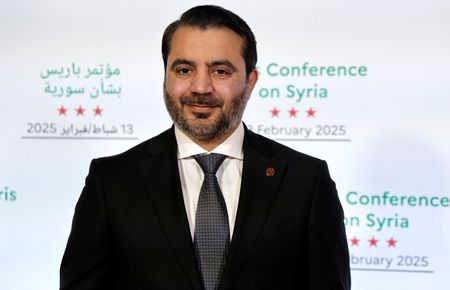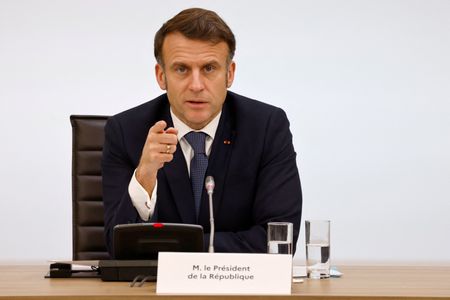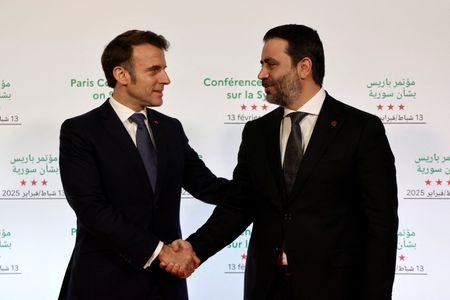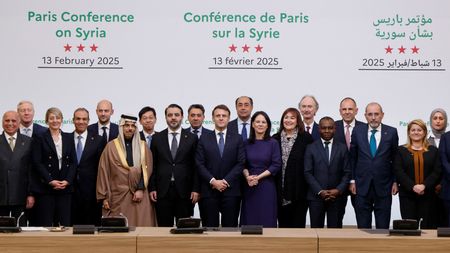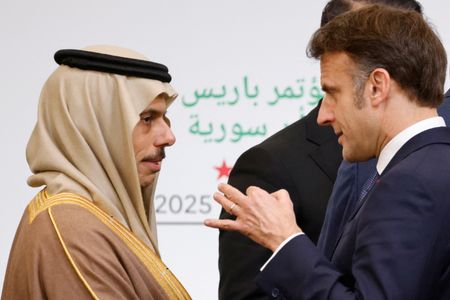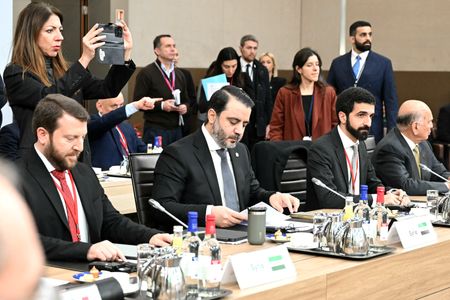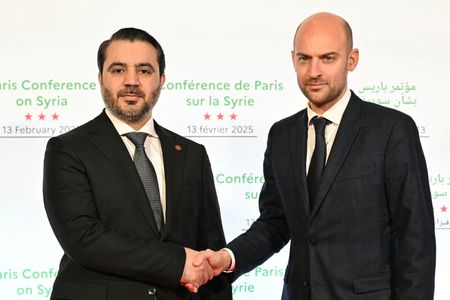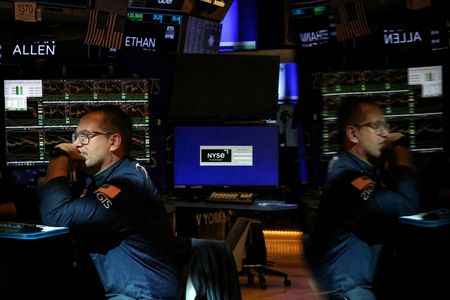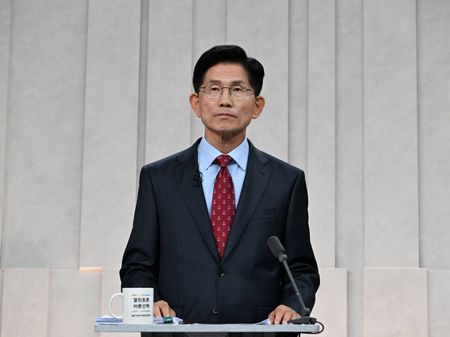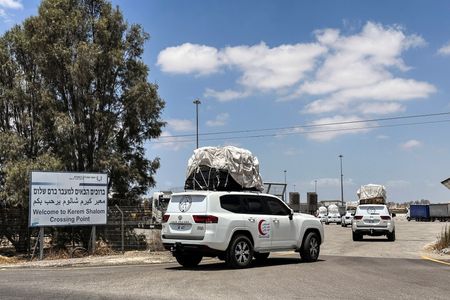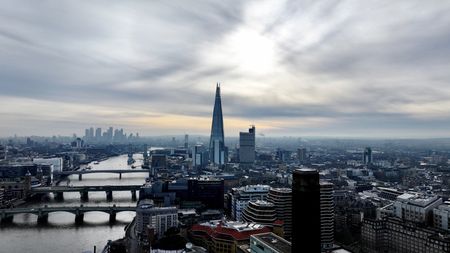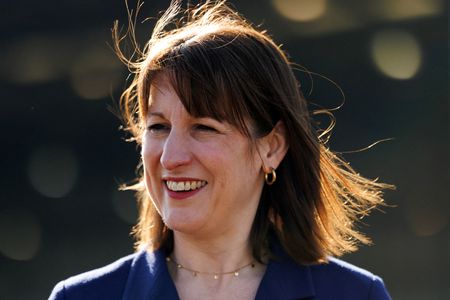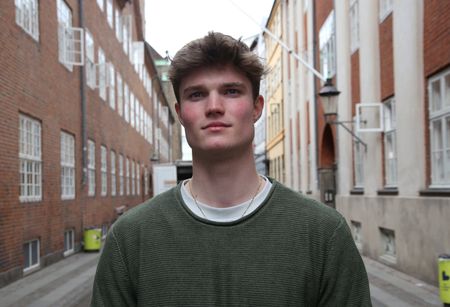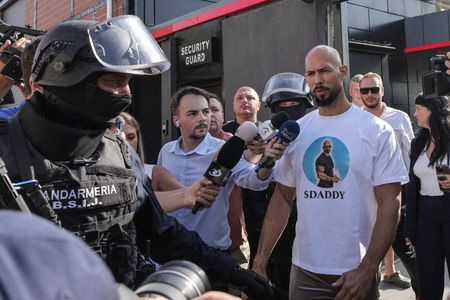By John Irish
PARIS (Reuters) – Twenty regional and Western powers agreed in a joint statement on Thursday to do their utmost to help Syria’s new authorities and shield the country during its fragile transition amid ongoing instability across the Middle East.
Syrian Foreign Minister Asaad Hassan al-Shibani led a delegation for a first trip to the European Union since the December overthrow of Syria’s autocratic president Bashar al-Assad, and a few days after President Emmanuel Macron invited Syria’s transitional President Ahmed al-Sharaa to France.
Al-Shibani did not address the media during the meeting.
Regional ministers, including from Saudi Arabia, Turkey and Lebanon, were joined by Western partners at the gathering, though the U.S. had only a low-level diplomatic presence.
The meeting aimed to coordinate efforts to ensure Syria’s sovereignty and security through its transition, and mobilise its main neighbours and partners for aid and economic support.
“We want Syria to stop being used to destabilize the region. On the contrary, we want the Syrians to be able to focus today on the success of the transition and the recovery of their country,” French Foreign Minister Jean-Noel Barrot said at the start of the meeting.
In a statement agreed by 20 countries, including Syria, most Arab and Western states, but excluding the United States as diplomats said the administration was still defining policy, the participants said they would work to “ensure the success of the post-Assad transition in the framework of a process that is Syrian-led and Syria-owned in the spirit of the fundamental principles of U.N. Security Council resolution 2254.”
They would also “provide the support it requires to ensure terrorist groups cannot re-establish a safe haven in Syrian territory.”
The meeting did not aim to raise funds, which will be left to an annual pledging conference in Brussels on March 17, but issues such as the lifting of sanctions imposed on Syria during Assad’s iron-fisted rule were to be discussed.
The EU agreed in principle last month to lift sanctions but there has been no follow-through due to Greek and Cypriot objections to maritime boundary talks between Syria and Turkey that affect waters claimed by Greece and Cyprus.
Greece and Cyprus also want assurances that sanctions could be restored quickly, two diplomats said.
They said they were hopeful a compromise could be reached this month. Barrot said sanctions-lifting was a work in progress and German counterpart Annalena Baerbock said it would be done “step by step”.
Ahead of the meeting, the main international aid donors met in Paris to take stock of Syria’s humanitarian situation, notably in the northeast, where the impact of U.S. aid cuts has had a “terrifying” impact, according to a European official.
The agreed to establish a working group under UN auspices to coordinate their future efforts, Barrot said.
France will provide 50 million euros ($52.1 million) in 2025 to help stabilise Syria, Barrot said.
Speaking at the conference, French President Emmanuel Macron said Paris was ready to do more to help the country tackle terrorist groups and urged the transition to consider working with the Western-led Inherent Resolve operation in neighbouring Iraq to fight Islamic State.
($1 = 0.9594 euros)
(Reporting by John Irish; editing by Daniel Wallis, Mark Heinrich and Toby Chopra)

